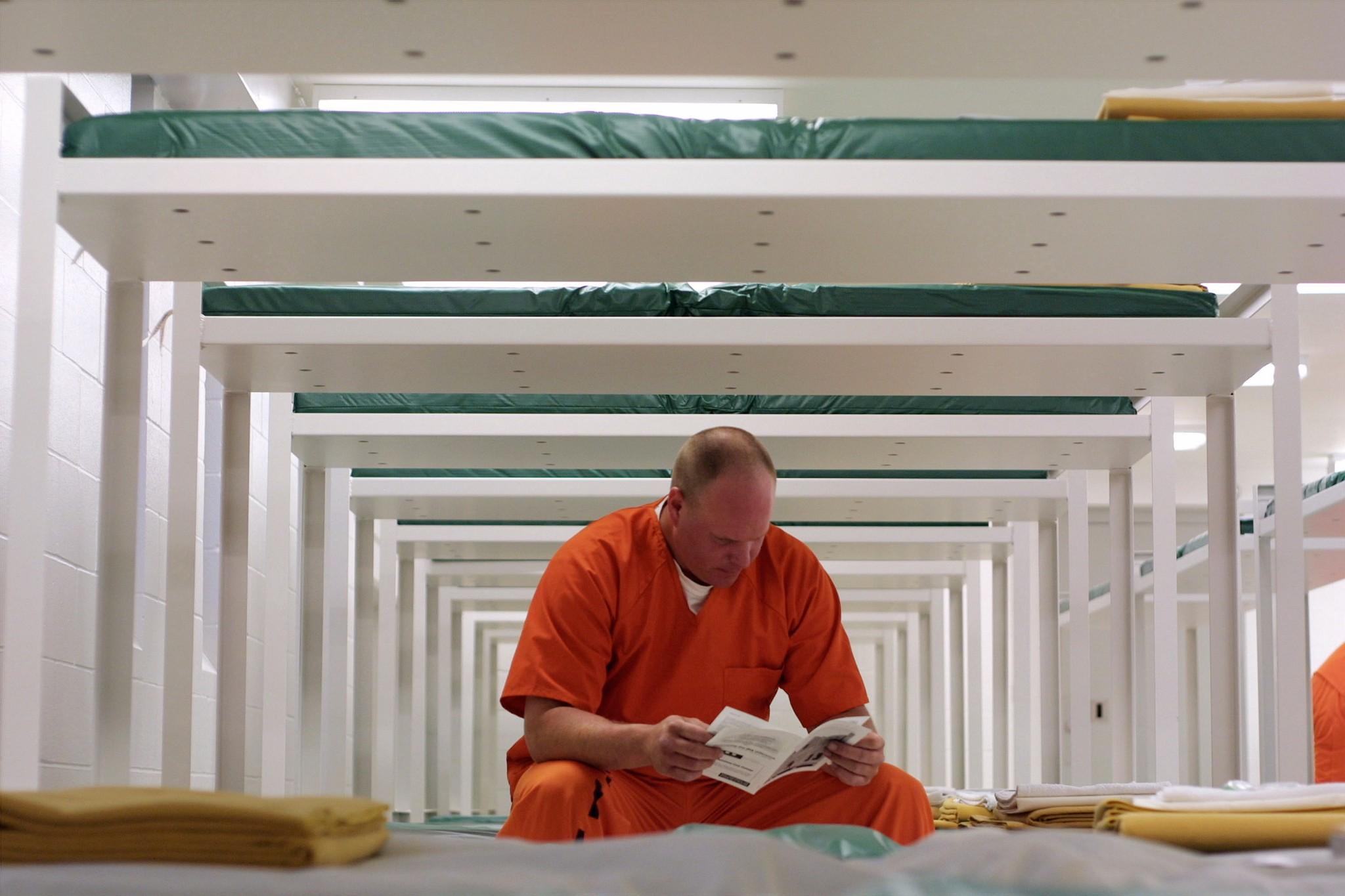For New York Prisoners, a Package Policy that Effectively Pits TV Against Books
A little-known New York Department of Corrections and Community Supervision policy has limited access to books in at least nine prisons for years.

In a downtown Manhattan high-rise, public defender Ben Schatz’s office overflows with books, from Amy Tan to Leo Tolstoy, many stuffed into returned packages labeled “prohibited,” “refused,” and “not allowed.”
The books were returned to Schatz from upstate New York prisons, where he attempts to send reading material requested by prisoners through Books Beyond Bars, a donation-based project of the New York City-based nonprofit Center for Appellate Litigation.
“We have clients who have been incarcerated for decades, and who have few, if any, contacts outside prison other than their lawyers,” says Schatz, “So to have someone send them a book is an incredible thing. They’re in solitary conditions with literally nothing to read other than their legal papers, which they read every day over and over.”
Corrections officials offer inconsistent explanations for rejected books, Schatz says. But many stem from a curious, little-known directive that has been in place for decades, in at least nine of the state’s 55 prisons.
These prisons — which house more than 10,000 people — are designated as “TV facilities” by the New York Department of Corrections and Community Supervision (DOCCS). A DOCCS rule stipulates that a TV facility “may allow inmates to own television sets,” after they take part in a “vote via secret ballot” on the option to purchase a personal TV set from the prison’s commissary. If a majority votes for TV sets, then prisoners at TV facilities can only receive two packages per year weighing up to twenty pounds from “personal sources” such as family or friends — containing only food. And per DOCCS policy, results of the vote “are irreversible, and all inmates at the facility will be subject to the guidelines [restricting receipt of packages] regardless of their individual choice to own a television set or not.”
Prisoners can continue to buy some items from a list of “approved vendors,” like the retailers Amazon and Walmart. (Like myriad other privatized amenities that cater to prisoners and their families, the prison package business is a lucrative one.) But the problem, Schatz notes, is that many incarcerated people can’t afford to buy books, so the restriction profoundly cuts down on their ability to access any reading material. They’re left with the often scant selection available at the understocked prison library — or, if they’re in solitary confinement, no books at all.
Given that books are among prisoners’ most vital tools for personal development and growth, one would think that DOCCS should encourage incarcerated people to access as much free reading material as they want. But DOCCS plans to cut even more prisoners off from free books in the New Year. This month, it rolled out a new policy at three non-TV facility prisons — one it plans to extend to all state prisons by the end of 2018, including TV facilities — that designates that prisoners at the pilot prisons can only receive books from approved vendors. A DOCCS official defended the policy to In Justice Today, saying that it is meant to stem what he claims has been a recent rise in contraband, including drugs that have led to overdoses.
Many prisoners at TV facilities have filed grievances with the DOCCS regarding returned or missing packages, but these complaints often go unanswered. And there is generally little legal recourse for those behind bars, even when policies are unconstitutional, because they don’t have the money to hire a lawyer.
But some prisoners are fighting back. Jeremy Zielinski, a prisoner at the Clinton Correctional Facility in Upstate New York, recently filed a lawsuit in federal court arguing that the TV policy violates the constitutional rights of prisoners. An hour and half south of Montreal, Clinton is the state’s largest maximum-security prison, and has made headlines in recent years for reports of rampant and sometimes fatal staff-on-prisoner assaults and the dramatic 2015 escape of two men, one of whom was later shot by U.S. Border Patrol agents.
Zielinski’s 30-page pro se complaint chronicles his and other prisoners’ stymied attempts to receive “personal bibles, college correspondence course materials, books and magazines, an inmate’s own published writings, and privileged correspondence from the U.S. National Archives.” Zielinski notes that many approved vendors only have online catalogs that he can’t access, and that some of his requests for printed catalogs by mail have been ignored. Many of the vendors also won’t accept mail orders, making it “impossible” for him to order from them. Zielinski’s lawsuit is currently pending in federal court.
Meanwhile, prisoners in TV facilities are still out of luck when it comes to requesting free books from family, nonprofits, and religious organizations.
“We regularly get requests from inmates seeking books they can use to further their education, or improve their marketability, or learn job training skills upon reentry,” says Schatz. “Prison education and learning job skills reduces recidivism and increases the likelihood of post-release employment, so restricting inmates from accessing these materials only serves to undermine the ostensible aims of the corrections system.”
